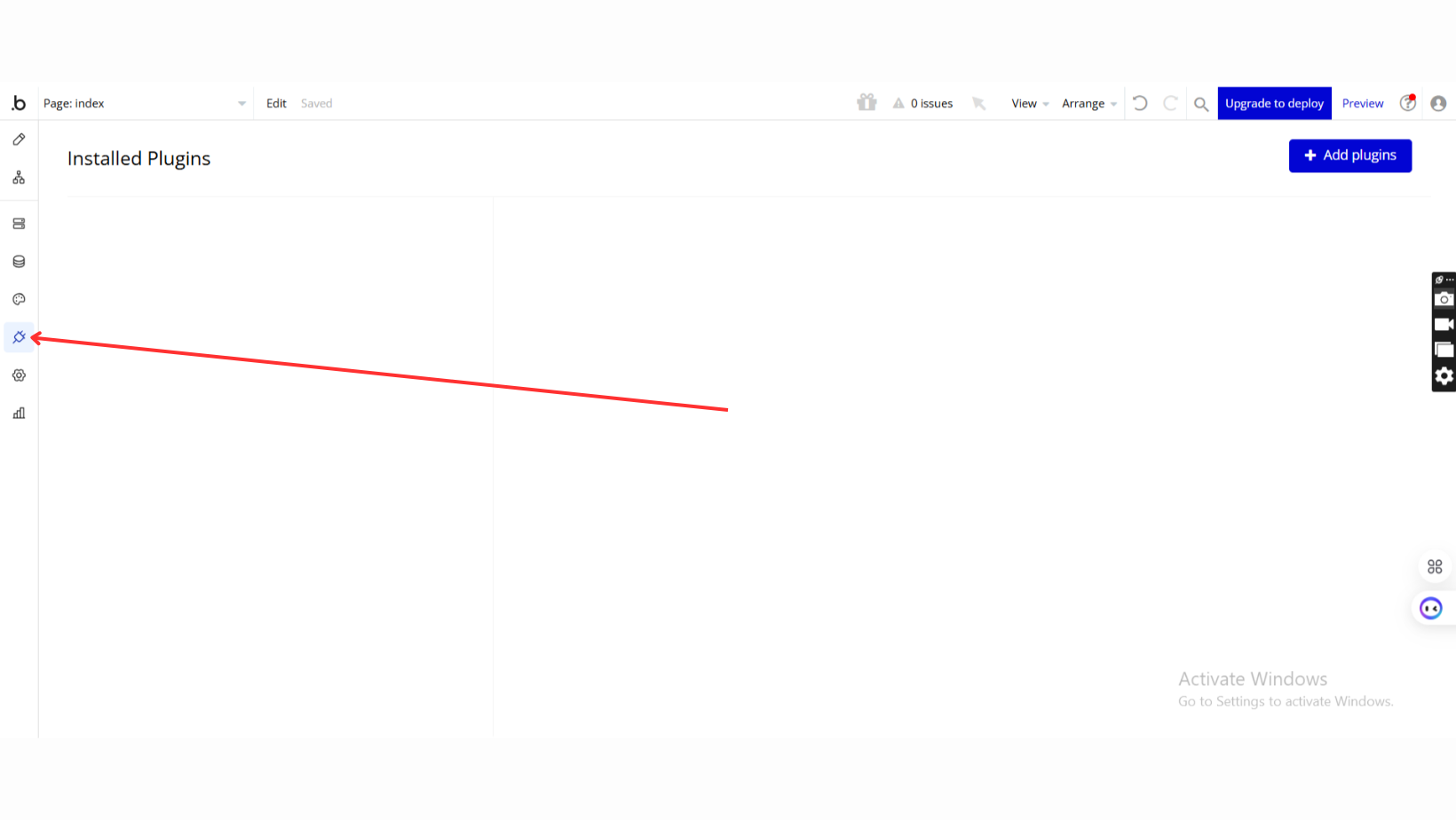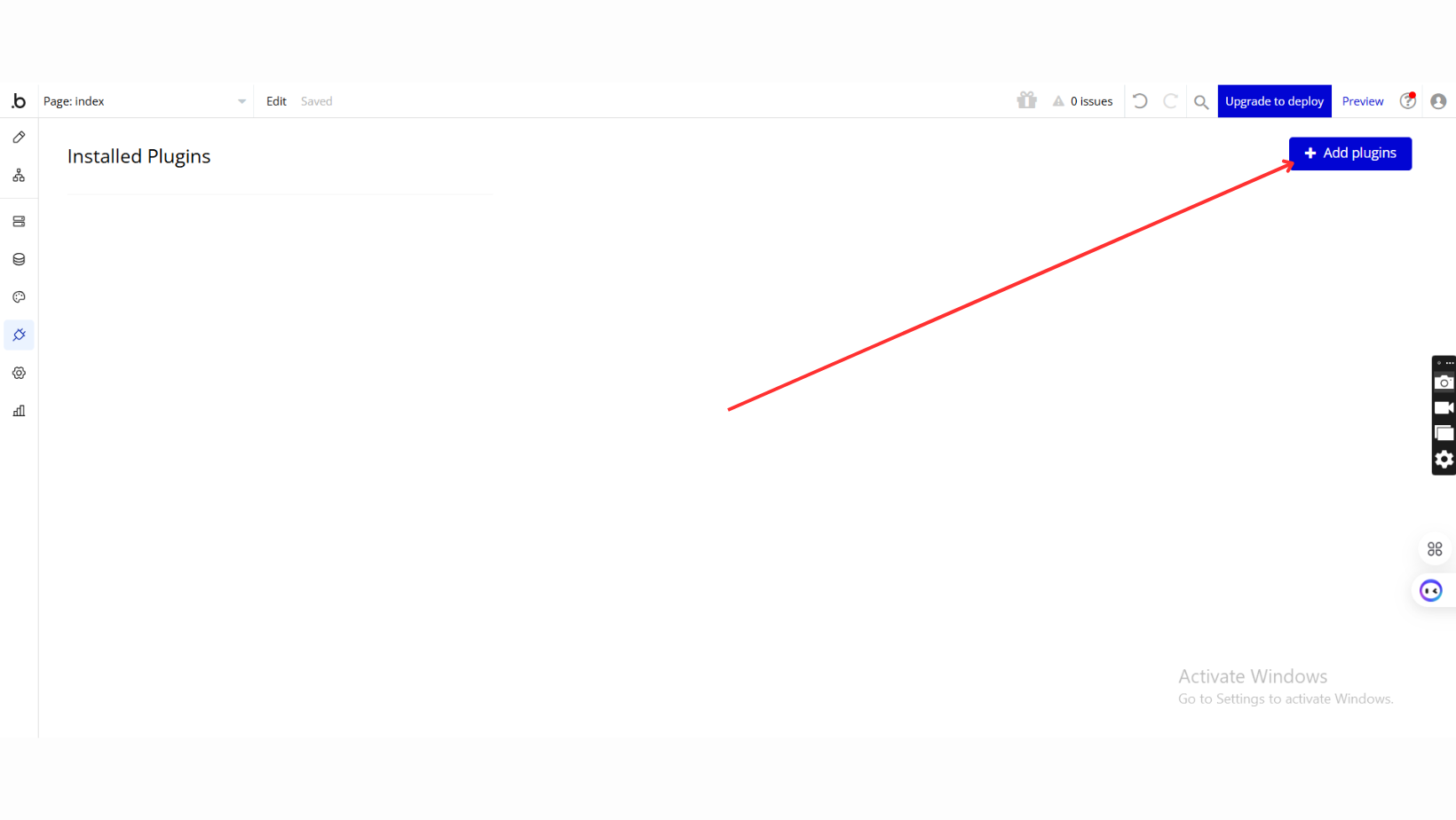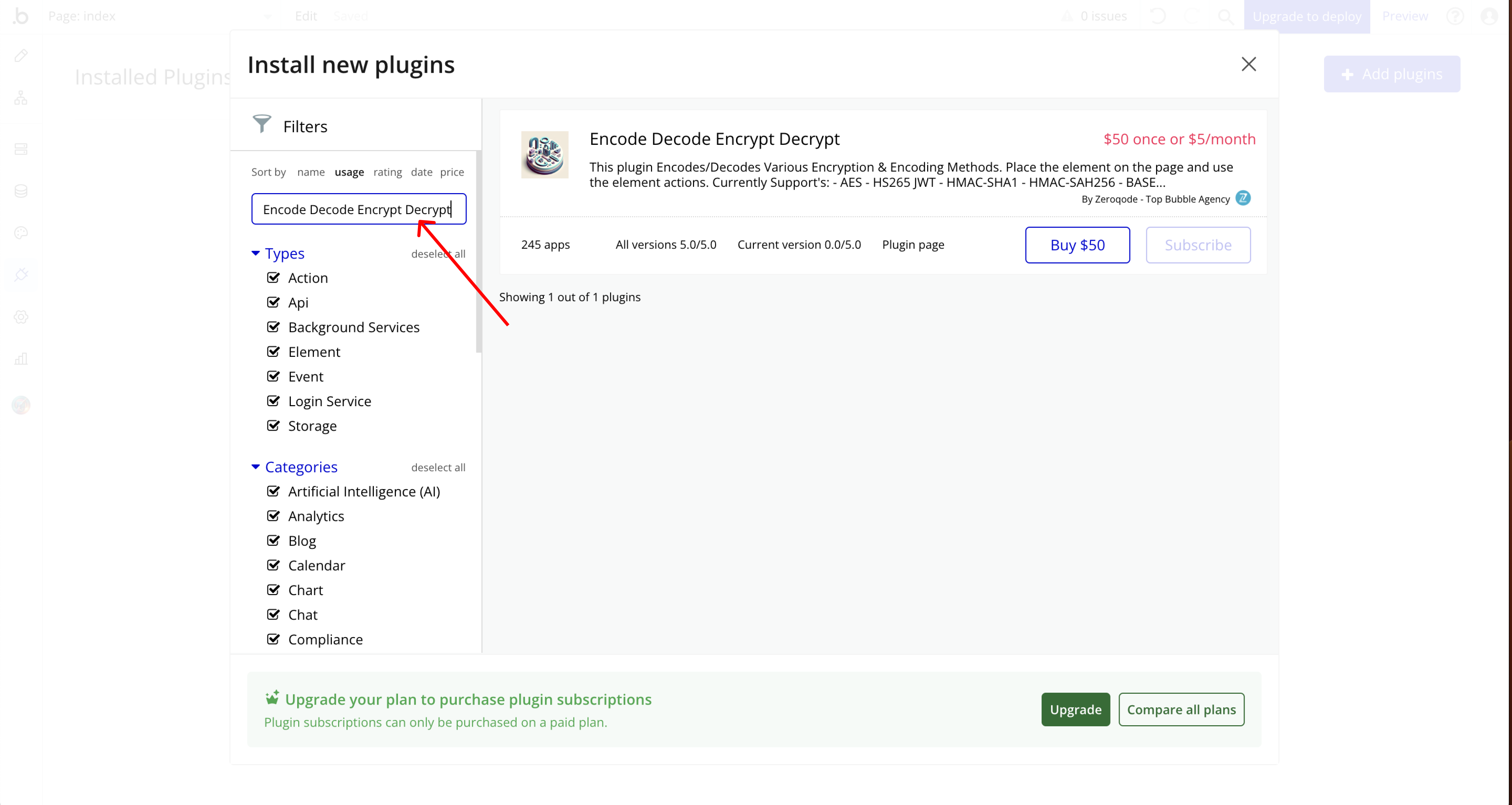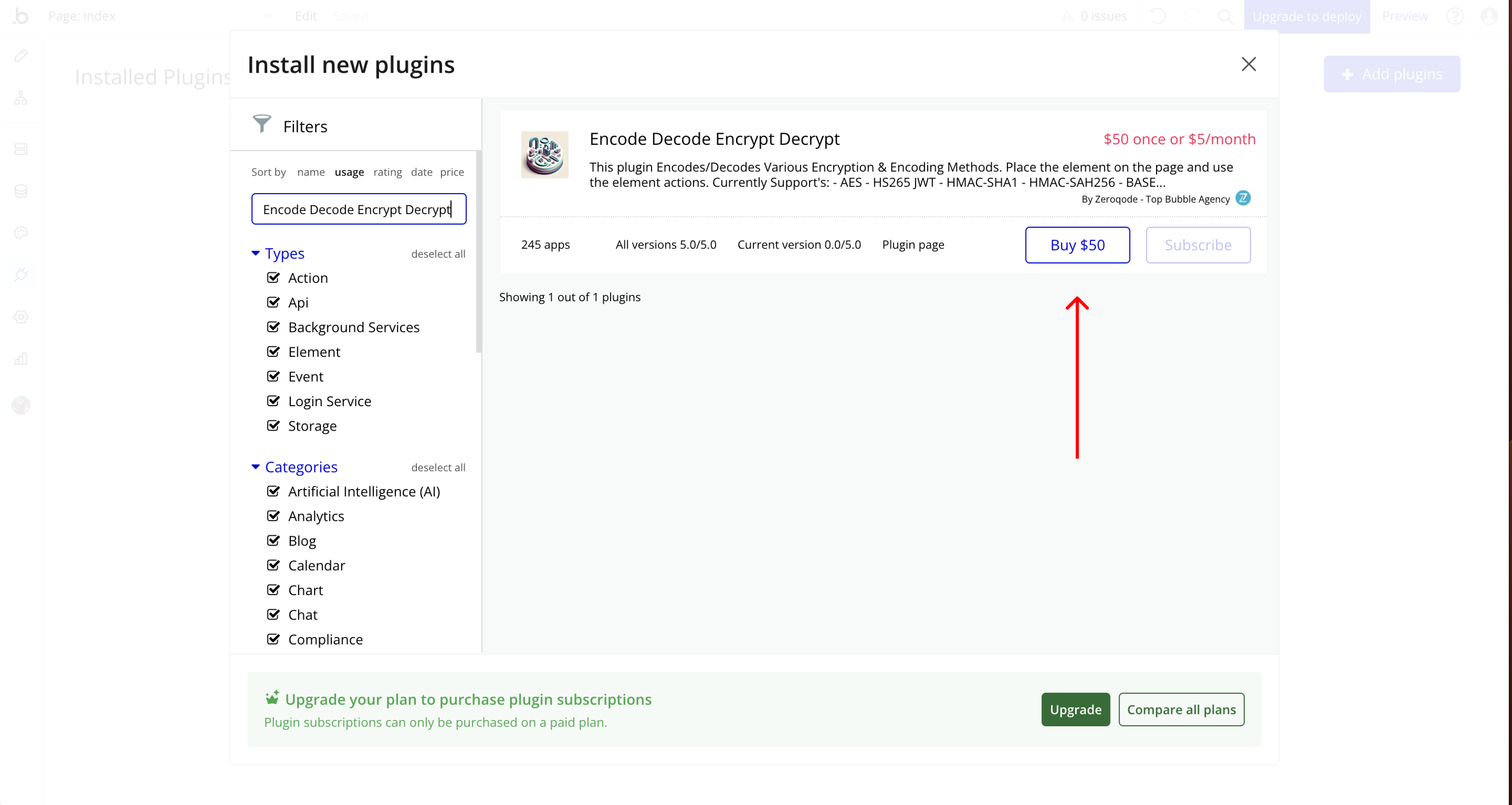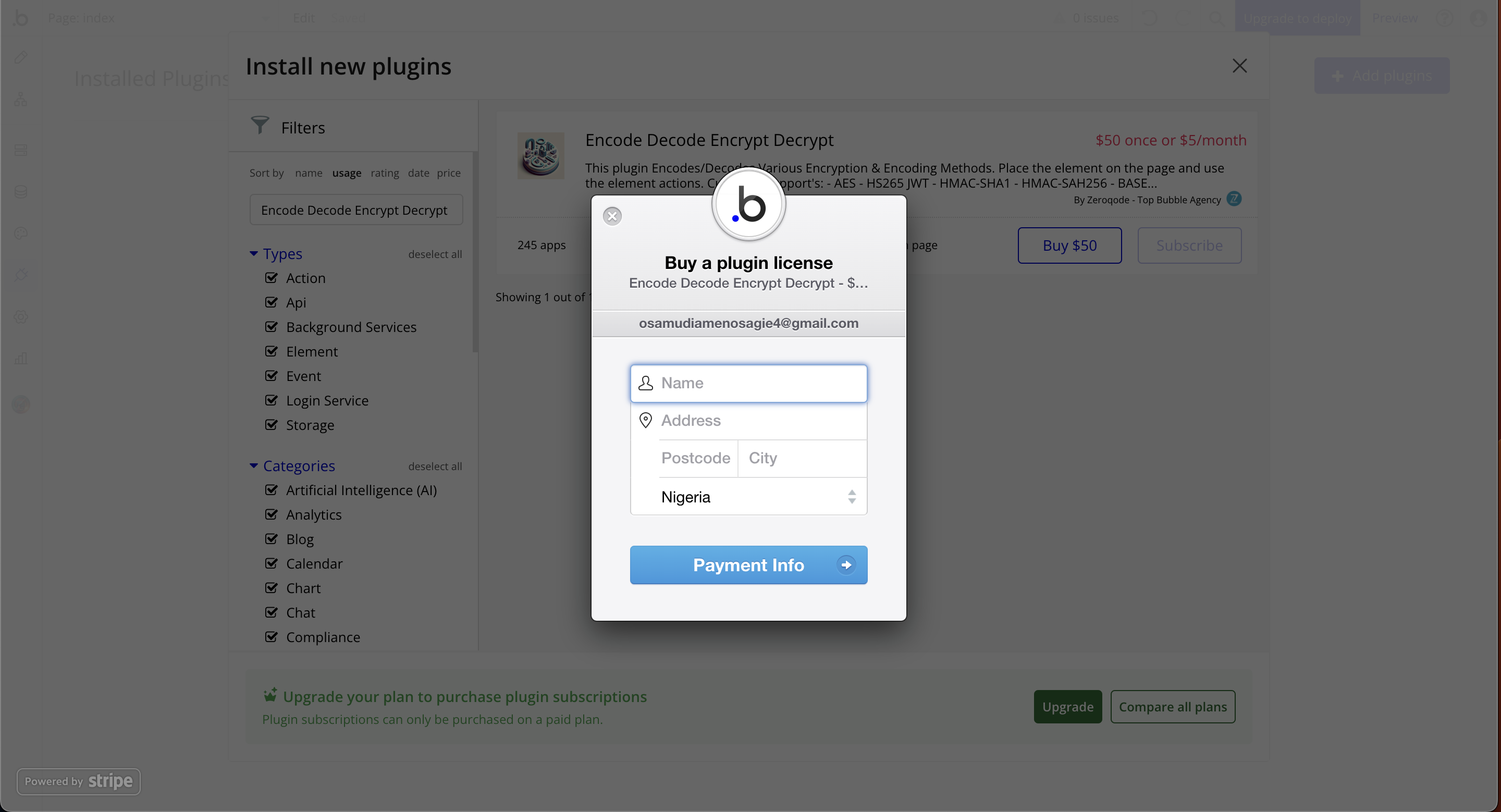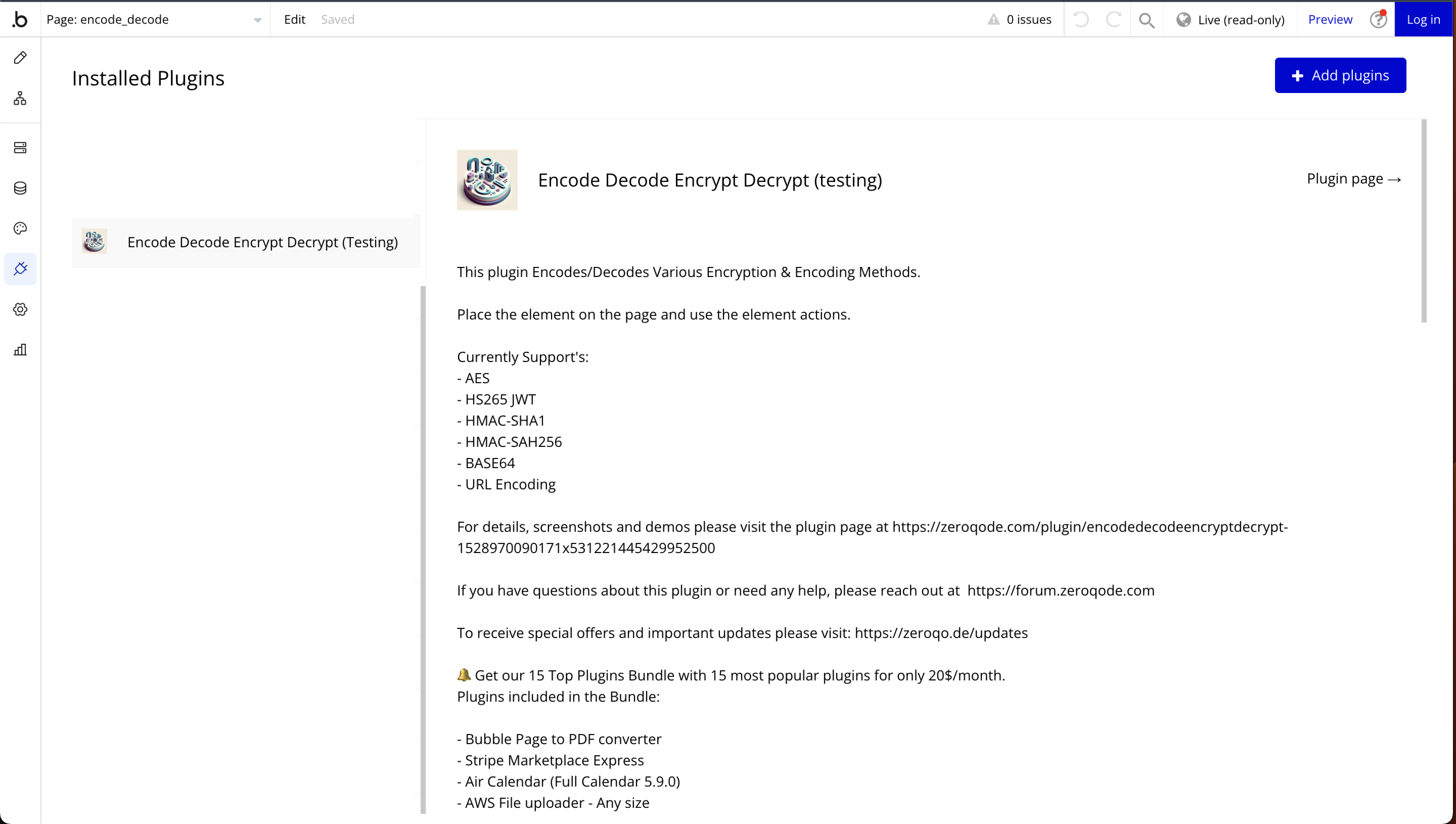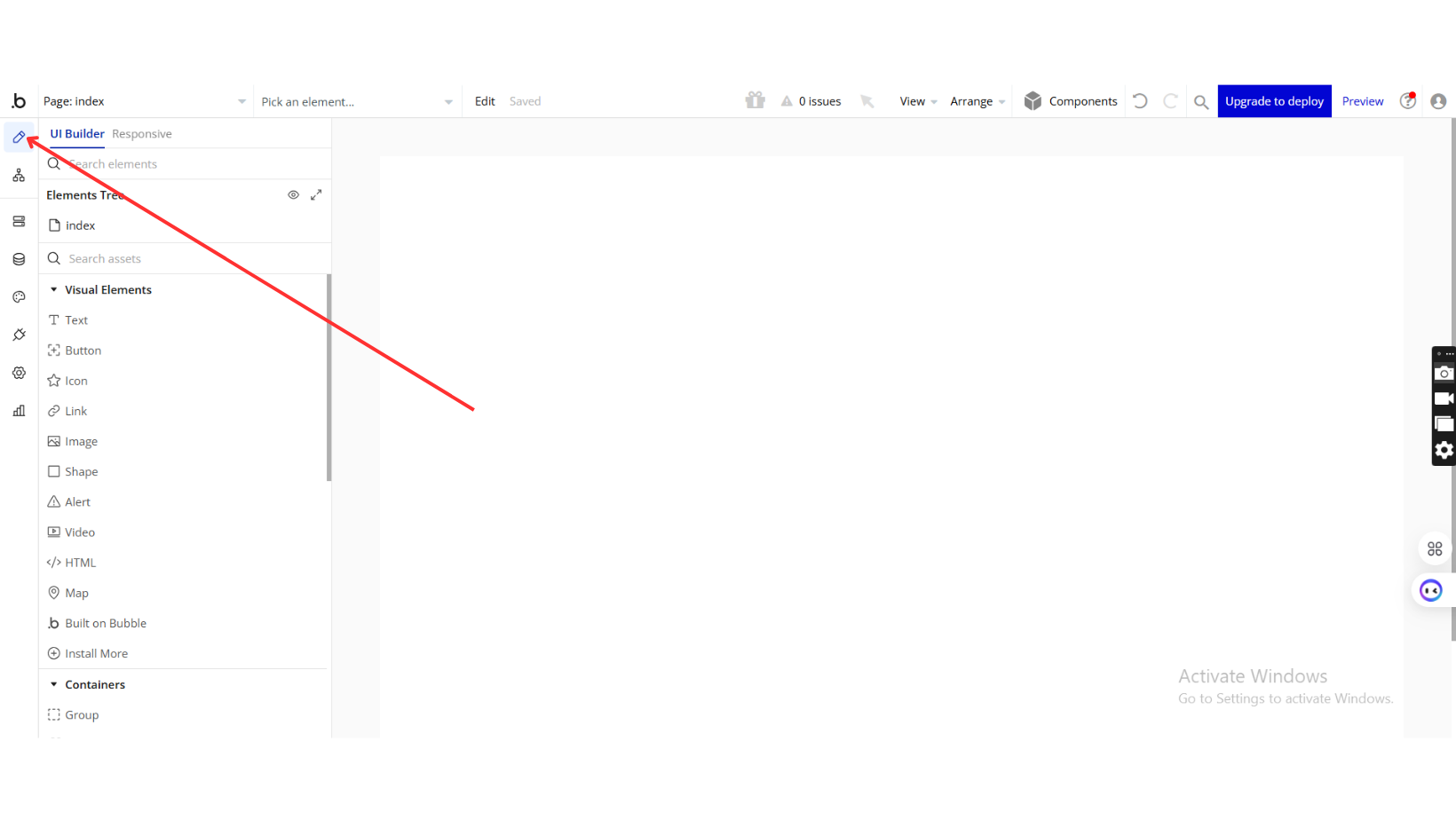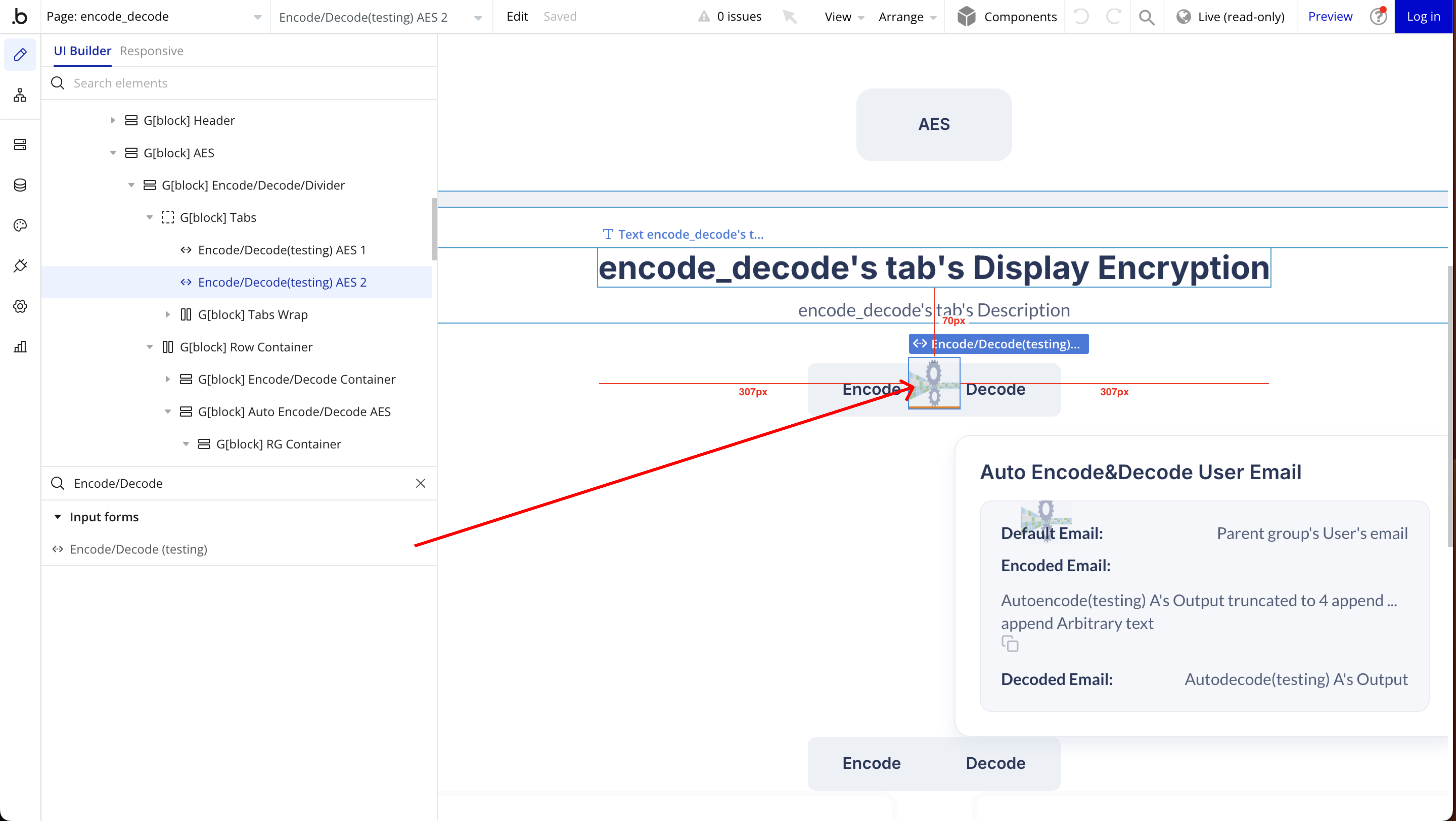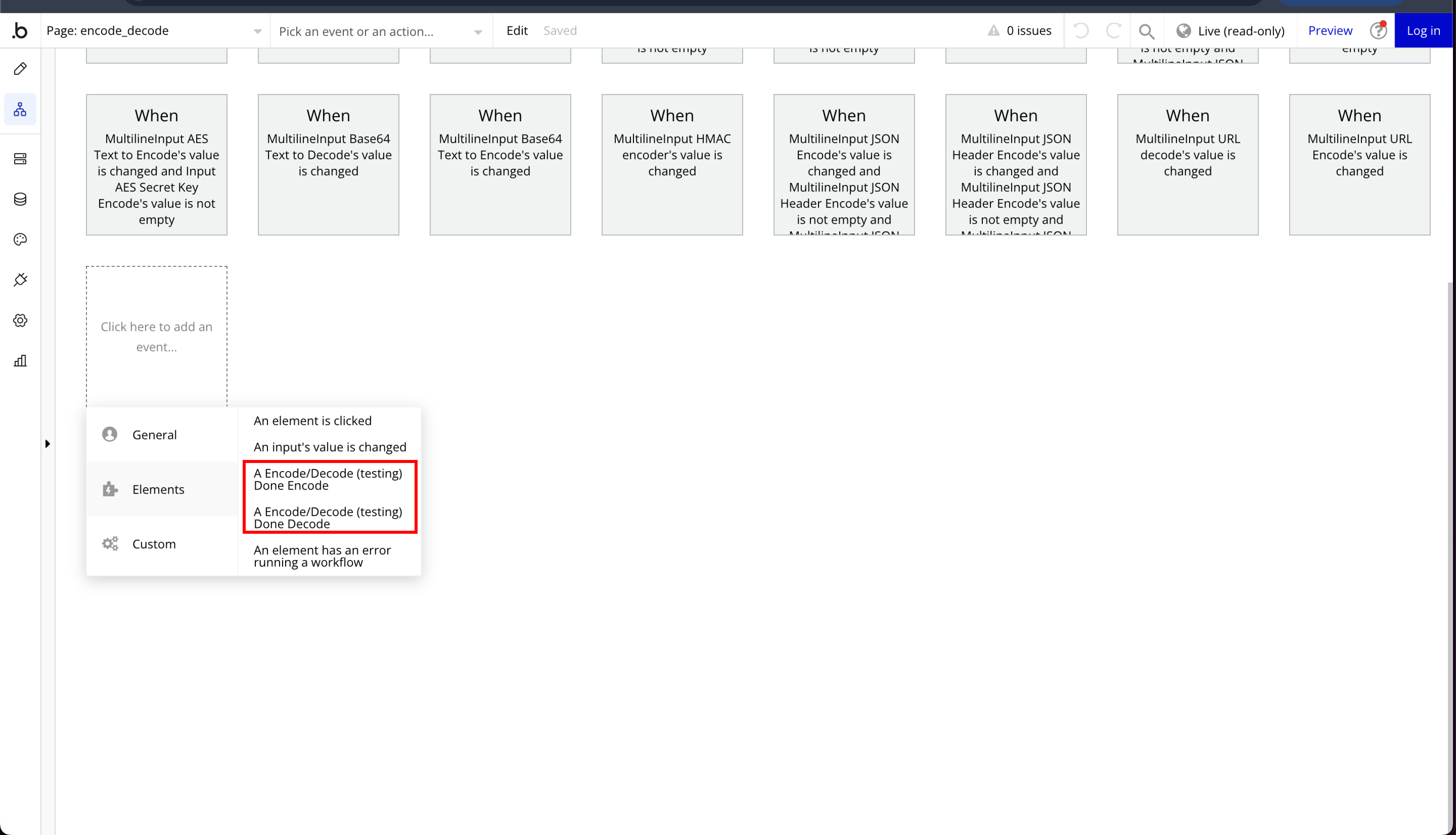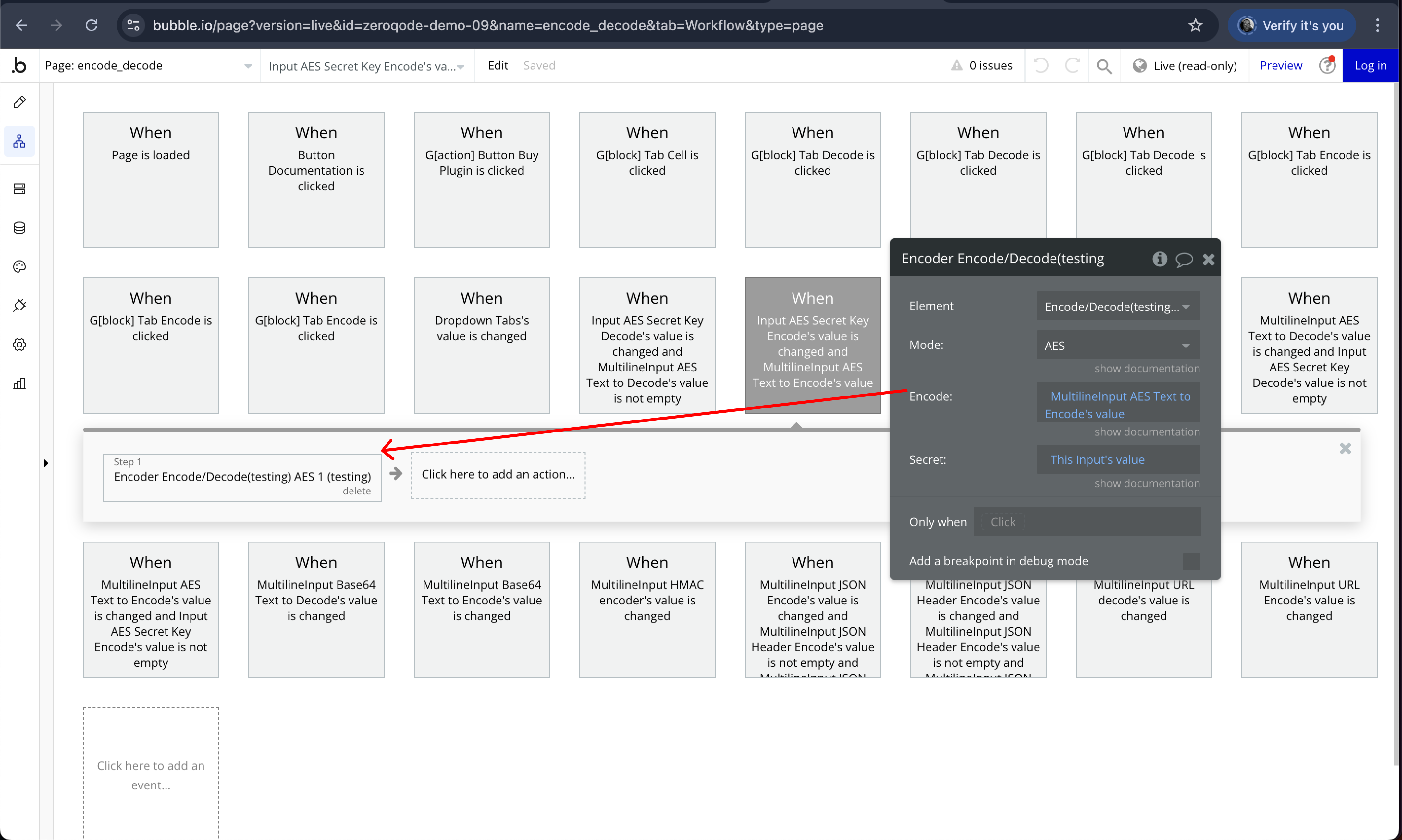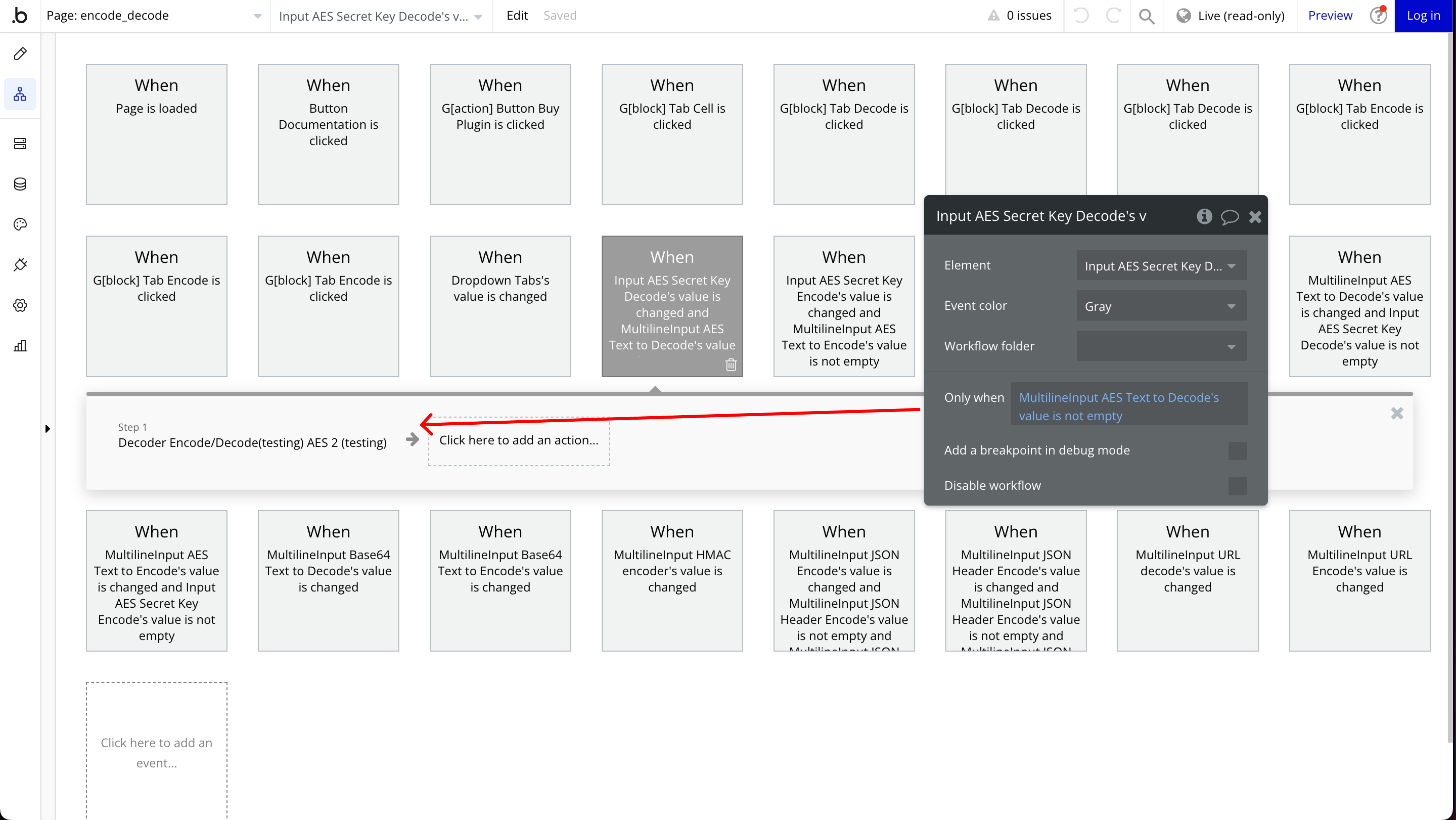Link to the plugin page:
Demo to preview the plugin:
Introduction
Looking for an encode and decode functionality for your Bubble app? Our no-code plugin provides encoding and decoding capabilities through various encryption and encoding methods.
See Key Features
Prerequisite
- Bubble Account: An active Bubble.io account is required to install and use the plugin.
- Plugin Installation: The plugin can be installed directly from the Zeroqode Plugin Store or from the Plugins section of your Bubble Editor.
- Familiarity with Bubble Workflows: Basic knowledge of Bubble workflows is required to dynamically control progress values and actions.

How to setup
Step 1: Installation
Step 2: Place the Element
Step 3: AES Example Workflow
Plugin Element Properties
Encode/Decode
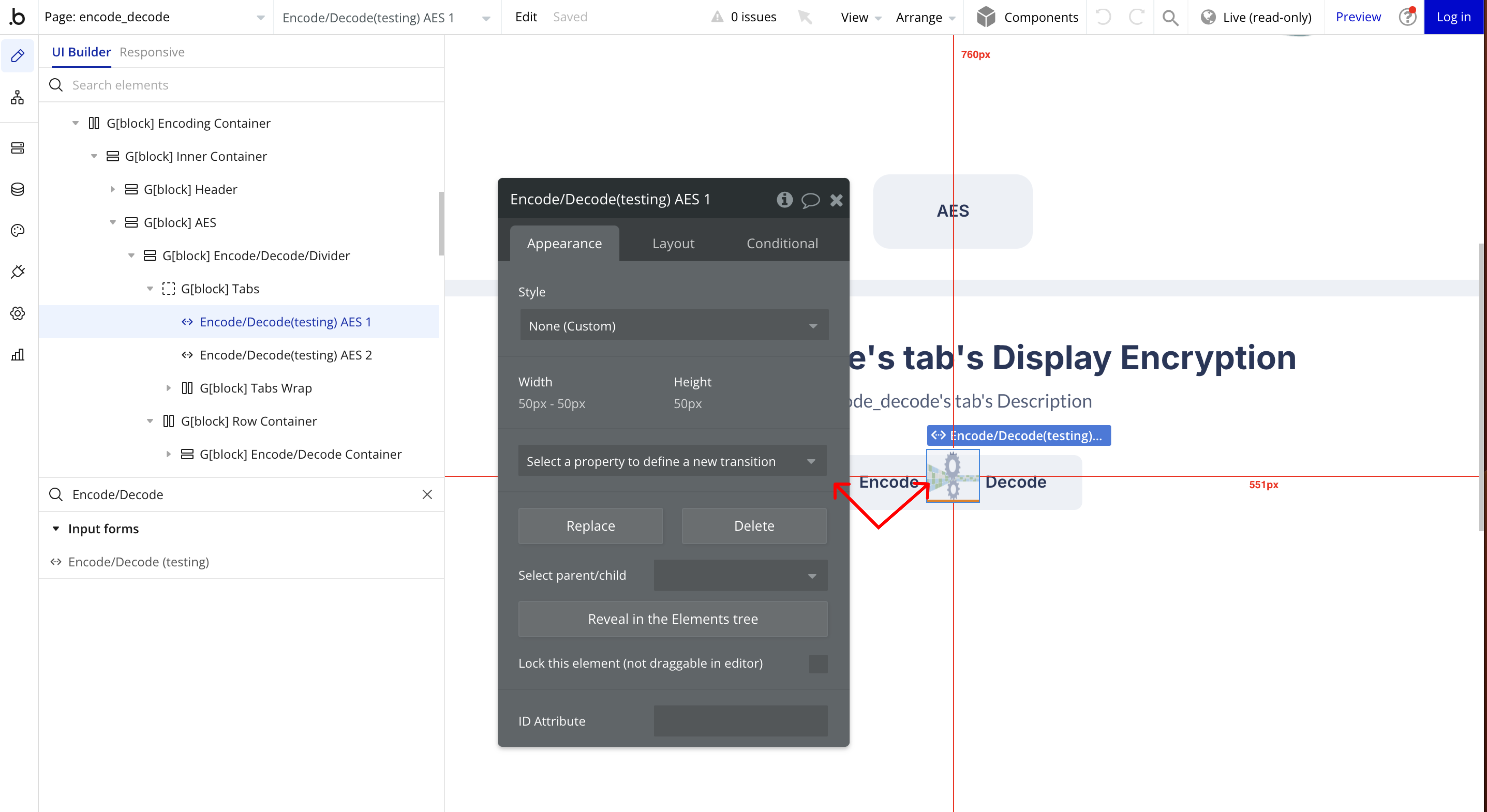
Element Actions
- Encoder
The Encoder action in the plugin is responsible for converting a string into a specific encoded format.
Title | Description | Type |
Mode: | Select from available hashing algorithms: SHA-1, HMAC-SHA1, HMAC-SHA256, AES, BASE64, URL Encoded | Dropdown |
Encode: | Transforms a given message into the selected encoded format. | Text |
Secret: | A private key or passphrase used in encryption and decryption. | Text (optional) |
- Custom HMAC
The Custom HMAC (Hash-based Message Authentication Code) action allows you to generate a secure hash of a given message using a secret key.
Title | Description | Type |
Secret: | The private key used to generate the hash. | Text |
Request Path | The URL path of the request being authenticated. | Text |
Body | The request body content (optional). | Text (optional) |
Method | The HTTP method used (Available options: GET, POST). | Text |
- Create a JWT
The Create JWT action allows you to generate a JSON Web Token (JWT) using a secret key.
Title | Description | Type |
Header | Defines the metadata and algorithm for the token. | Text |
Data | Contains the claims or payload of the JWT. | Text |
Secret | A private key used to sign and verify the token. | Text |
- Decoder
The Decoder action allows you to decode data that has been encoded previously using various encoding schemes such as Base64, URL Encoding, or other supported methods in the plugin.
Title | Description | Type |
Mode: | Select from available decoding methods: AES, BASE64, URL Decode. | Dropdown |
Decode: | Converts an encoded message back into its original readable format. | Text |
Secret: | A private key or passphrase used in decryption. | Text (optional) |
- Convert
The Convert action in the plugin allows you to transform data from one encoding or format to another.
Title | Description | Type |
Mode | Select the conversion mode (Available option: Hex to Base64). | Dropdown |
String | The input text, number, or symbol sequence to be transformed. | Text |
- Clear Output
The Clear Output action resets or removes the result displayed after performing an encoding, decoding, or conversion operation.
- Sign (HMAC Base64 Headers)
The Sign (HMAC Base64 Headers) action is used to generate an HMAC (Hash-based Message Authentication Code) signature using a secret key and message (usually in Base64 format).
Title | Description | Type |
Mode: | Select hashing method: HMAC-SHA1, HMAC-SHA256. | Dropdown |
Add Header Type | Choose authentication type: Bearer, Basic, OAuth, Digest, None. | Dropdown |
Client ID: (Before :) | The identifier used before authentication. | Text |
Client Secret: (After :) | The secret key used after authentication. | Text |
Use Base64? | Enables Base64 encoding for the signature. | Checkbox (yes/no) |
Use Secret Key? | Specifies whether to use a secret key. | Checkbox (yes/no) |
Secret Key | The secret key used for signing. | Text |
Exposed states
Title | Description | Type |
Output | The resulting encoded or signed text. | Text |
HMAC Timestamp | The timestamp of the generated HMAC. | Text |
Element Events
Title | Description |
Done Encode | Triggered when encoding is successfully completed. |
Done Decode | Triggered when decoding is successfully completed. |
Auto encode
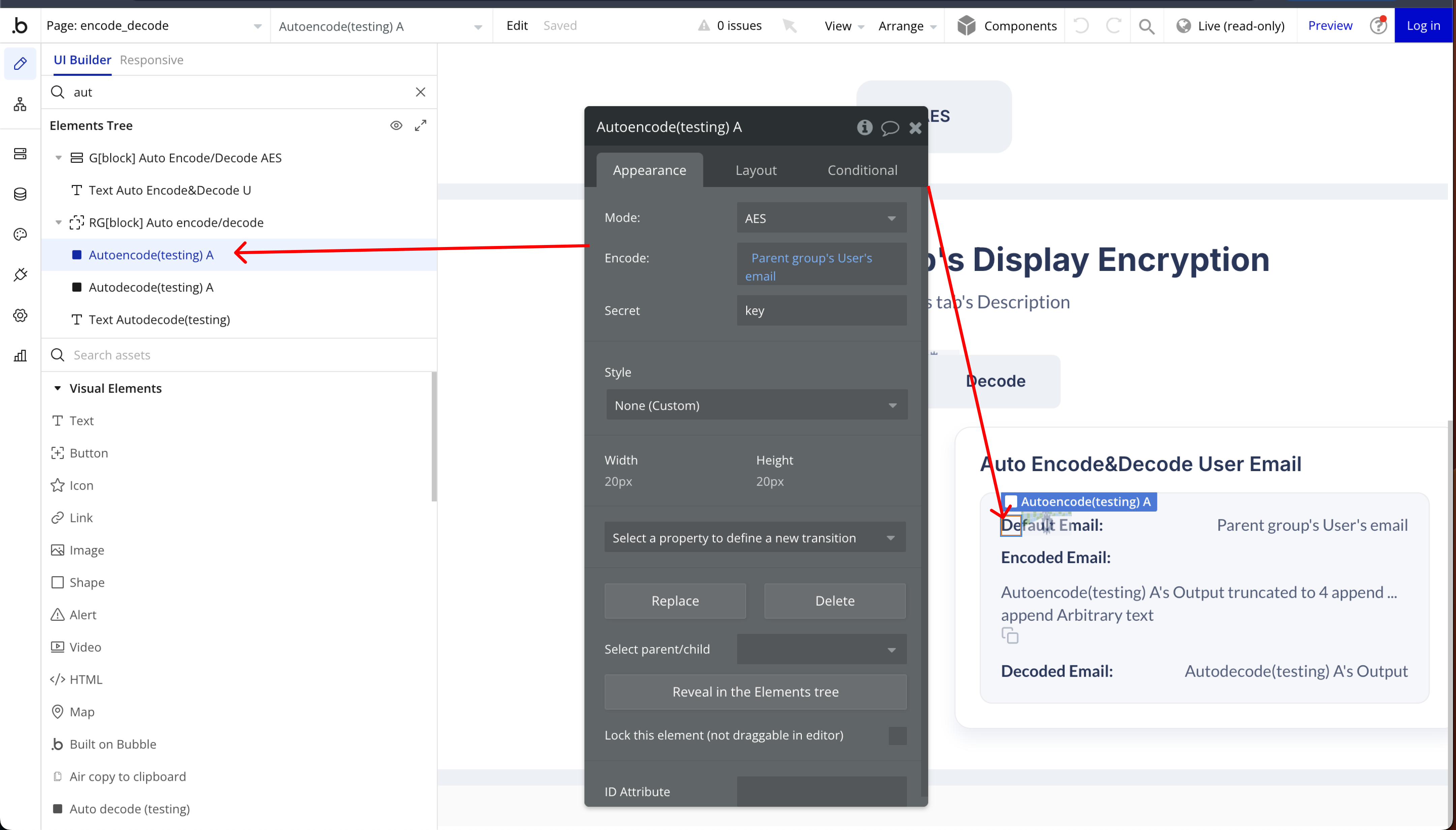
Fields:
Title | Description | Type |
Mode: | Available options: SHA-1, HMAC-SHA1, HMAC-SHA256, AES, BASE64, URL Encoded | Dropdown |
Encode: | This converts a given message into a specific encoded format. | Text |
Secret | Secret is a private key or passphrase used in encryption and decryption. | Text (optional) |
Exposed states
Title | Description | Type |
Output | Encoded Output | Text |
Auto decode
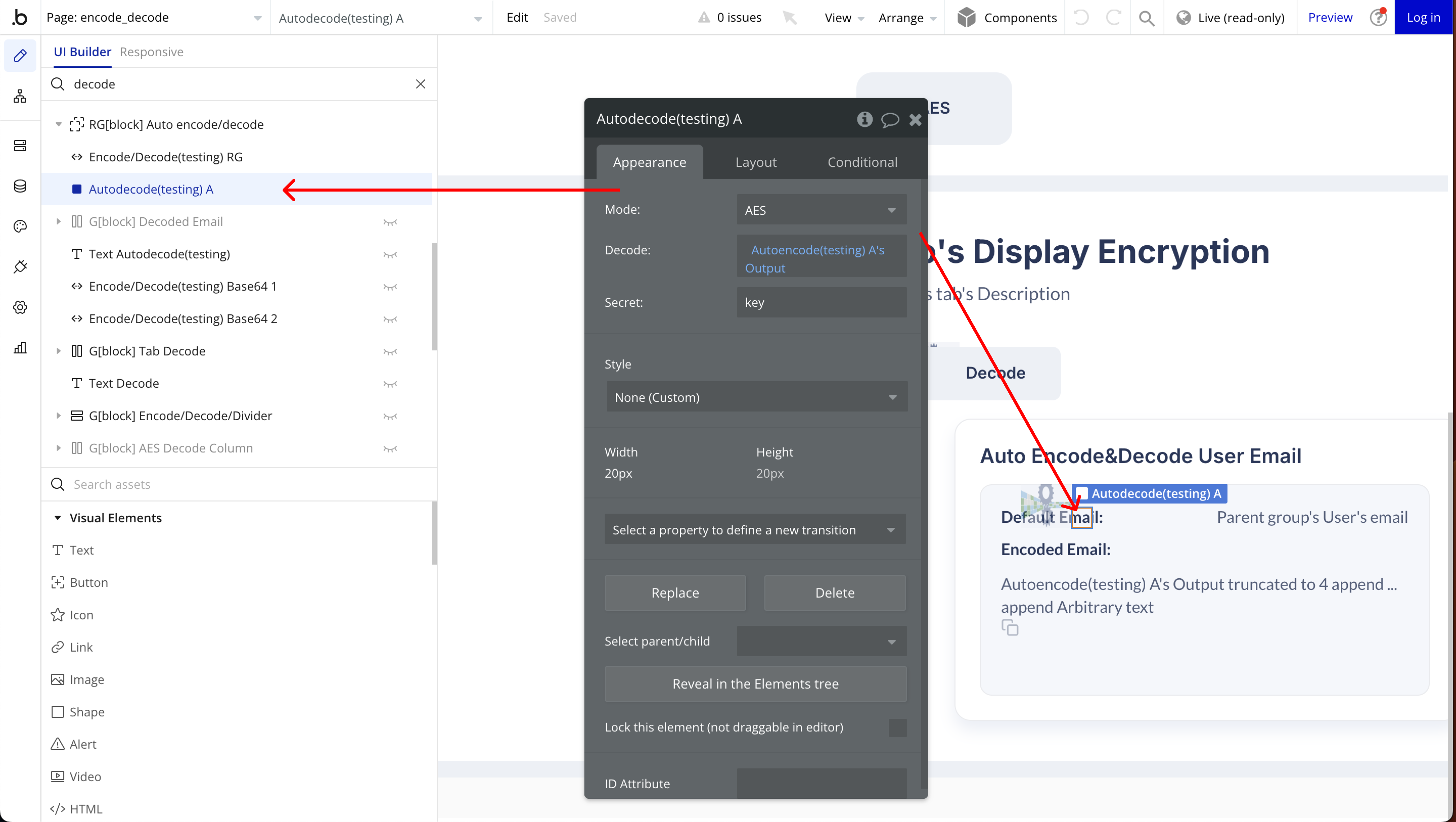
Fields:
Title | Description | Type |
Mode: | Available options: AES, BASE64, URL Decode | Dropdown |
Decode: | To convert encoded or encrypted data back to its original form | Text |
Secret: | The required key used for encryption and decryption | Text |
Exposed states
Title | Description | Type |
Output | Holds the processed text after encoding, decoding, encryption, or decryption. | Text |
End-to-End Encryption
Fields:
Title | Description | Type |
Output | Ensures secure message encryption using a public-private key pair for safe data transfer. | Text |
Element Actions
Creating a key pair
Generates a public-private key pair, commonly used for encryption, decryption, and digital signatures.
- Encrypt
Title | Description | Type |
Public Key | Used to encrypt data before transmission. | Text |
Message | The original text before encryption. | Text |
- Decrypt
Title | Description | Type |
Private Key | Used to decrypt data received from encryption. | Text |
Encrypted message | The unreadable text transformed after encryption. | Text |
Exposed states
Title | Description | Type |
Public Key | Used for encryption and verifying signatures. | Text |
Private Key | Used for decryption and signing data. | Text |
Encrypted Message | The unreadable version of the original message. | Text |
Decrypted Message | The restored original message after decryption. | Text |
Element Events
Title | Description |
Message is encrypted | Triggered when a message is successfully encrypted. |
Message is decrypted | Triggered when an encrypted message is decrypted. |
Keys is created | Triggered when a key pair is successfully generated.
|
Plugin Actions
- List Encoder
Title | Description | Type |
Mode: | Select encoding method: AES, BASE64, URL Encoded. | Dropdown |
Encode: | Input message to be encoded. | Text |
Secret: | The optional secret key for encoding. | Text (optional) |
Return Values:
Title | Description | Type |
Result | The encoded list of items. This output contains the encoded versions of each item in the original list. | Text |
Error | If any error occurs during the encoding process, this output will contain the error message or status. | Text |
- List Decoder
Title | Description | Type |
Mode: | Select decoding method: AES, BASE64, URL Decode. | Dropdown |
Decode: | Input message to be decoded. | Text |
Secret: | The optional secret key for decoding. | Text (optional) |
Return Values:
Title | Description | Type |
Result | The decoded list of items. This output contains the original (plaintext) versions of each item from the encoded list. | Text |
Error | If any error occurs during the decoding process, this output will contain the error message or status. | Text |


